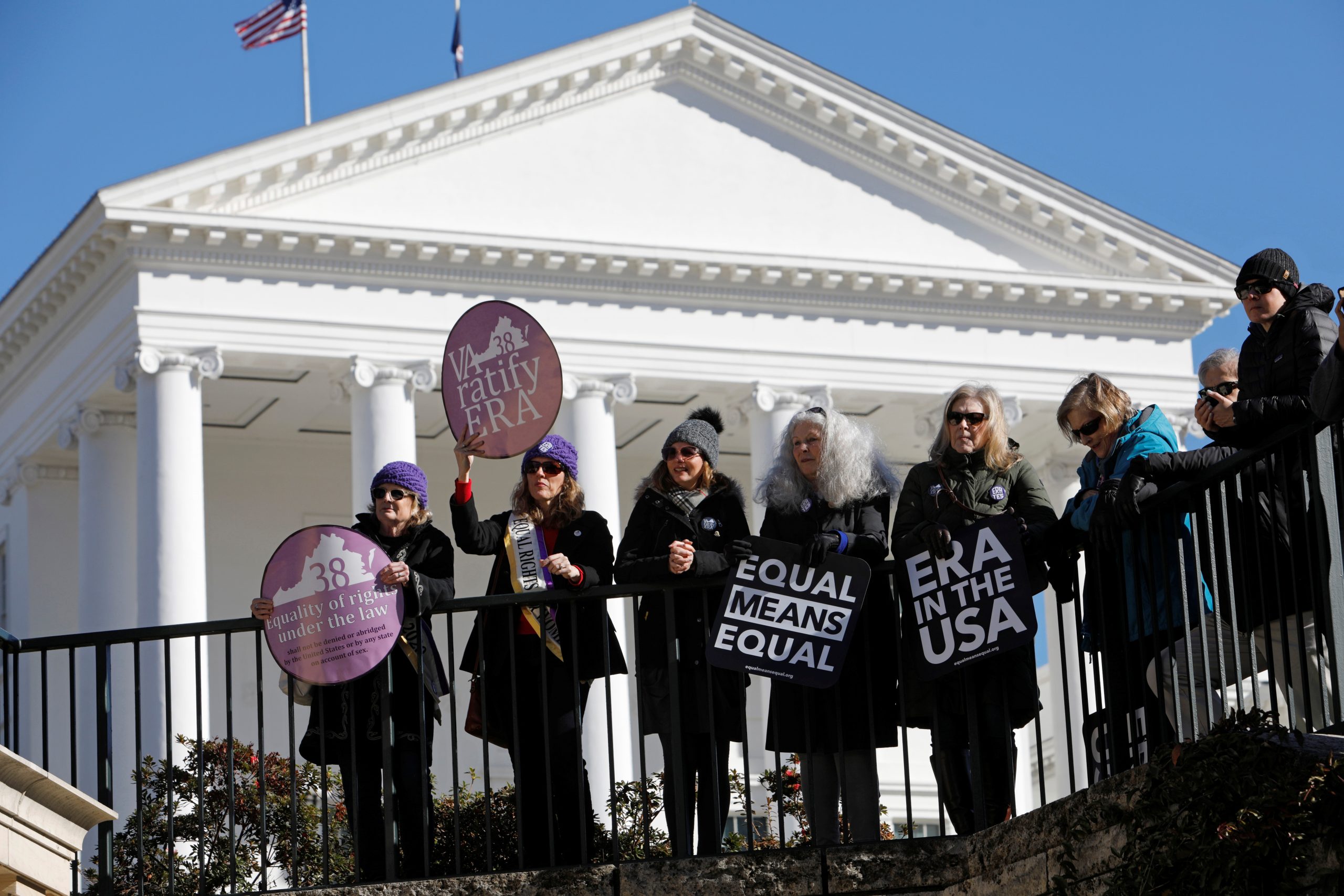The last three states to pass the Equal Rights Amendment sued the archivist of the U.S. government on Thursday, demanding that the amendment to the U.S. Constitution guaranteeing equal rights for women be declared valid.
Virginia, Illinois and Nevada filed the lawsuit in U.S. District Court for the District of Columbia, intensifying a debate over whether the deadline to ratify the ERA has passed, and whether the amendment is still needed.
Some conservatives oppose the ERA in part because they fear it could be used to bolster abortion rights, and the Justice Department under President Donald Trump has effectively stopped the National Archives from recognizing it.
But liberal activists have injected new life into the movement, saying women still suffer discrimination 100 years after winning the right to vote and noting studies showing they are routinely paid less than men for same work.
After Nevada passed the amendment in 2017 and Illinois in 2018, Virginia this month became the 38th state to ratify an amendment to the U.S. Constitution that states, “Equality of rights under the law shall not be denied or abridged by the United States or by any State on account of sex.”
Arguing that they could meet the final requirement for ratification, Virginia Democrats made passing the ERA a top priority after wresting control of the state legislature from Republicans in November.
“The ERA is now the 28th Amendment to the Constitution,” Virginia Attorney General Mark Herring declared in a news conference on Thursday, while also lamenting, “The forces that have tried to deny women the equal protection of the law for centuries have not yet been fully vanquished.”
Proponents argue that with passage in Virginia the amendment crosses the final threshold to be enshrined in the U.S. Constitution, now that three-fourths of the 50 states have passed it.
The amendment met the other requirements when it was passed by a two-thirds majority of the U.S. House of Representatives in 1971 and the U.S. Senate in 1972. From there it was sent to the states, becoming a major rallying cry of the women’s liberation movement of the 1970s.
Opponents say a deadline of 1982 set by Congress has long passed. Alabama, Louisiana and South Dakota filed their own federal lawsuit in December seeking to stop the ERA for that reason.
But Article V of the Constitution, which sets the rules for amendments, makes no mention of time limits, likely leaving the issue for the courts to decide.
Before the Virginia vote, the Justice Department issued a legal opinion saying the process would have to begin anew.
“Following the guidance from the Department of Justice’s Office of Legal Counsel that was issued on January 6, 2020, the Archivist will take no action to certify the adoption of the Equal Rights Amendment,” the National Archives and Records Administration said in a statement on Tuesday.
On Thursday the National Archives office said it could not comment on pending litigation.
(Reporting by Daniel Trotta in New York; Editing by Chizu Nomiyama and Matthew Lewis)

























 Continue with Google
Continue with Google